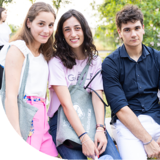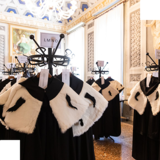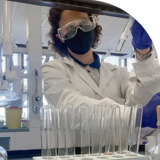Coordinatori: Fausta Pellizzari e Andrea Santini
Docenti di ruolo titolari di insegnamento: Simona Beretta, Mireno Berrettini, Rita Bichi, Pietro Cafaro, Antonio Campati, Floriana Cerniglia, Ennio Codini, Emilio Colombo, Paolo Colombo, Silvio Cotellessa, Paolo Gomarasca, Nicoletta Marzona, Martino Mazzoleni, Guido Stefano Merzoni, Enrica Patrizia Neri, Damiano Palano, Vittorio Emanuele Parsi, Luca Pesenti, Riccardo Redaelli, Claudia Rotondi, Monica Spatti, Maria Chiara Zanarotti, Roberto Zoboli
The programme in a nutshell
Knowledge of institutions and changes in society
Four different curricula, one of which is entirely in English, to deepen the knowledge of institutional, economic and social systems of the present and the past. The multidisciplinary approach allows students to investigate reality with analyses of historical-political, economic, legal and sociological nature.
Teaching methodology
Not only face-to-face teaching, but also high-level training experiences: seminars, external testimonials and study visits to leading national and international institutions are an added value of this programme.
What next? An international experience
Closely follow developments in contemporary reality and manage relationships at international level: these skills can be your strengths for working in public institutions, non-governmental organisations, publishing and journalistic companies or private enterprises.
Presentation
Enrolling in a degree programme in Political Sciences and International Relations means deciding to embark on a stimulating path, which allows you to acquire the interpretative tools of economic, legal, political, sociological and historical analysis. The multidisciplinary nature of the training provided by this course allows to understand and manage the extraordinarily complex dynamics that characterise contemporary institutional, economic and social systems, thus being able to coordinate and direct the activities of organisations and professionals operating on the basis of sectoral competences.
Graduates of this programmes, thanks to a solid and multifaceted preparation able to stand the test of time, are particularly well equipped to successfully meet the demand for ever newer professions in today's fast-changing society, with consequent good opportunities to enterthe world of work. The face-to-face teaching method is enriched by seminars, testimonials and study visits to national and international institutions, which allow students to listen to the experience of both scholars and protagonists of international relations, cooperation and national and international institutional life.
In addition, there is a wide range of exchanges with prestigious European and non-European universities.





